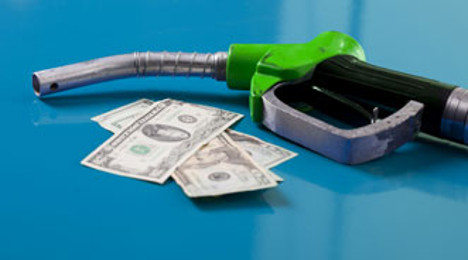Gas Stability Likely to Push Hybrid Depreciation Higher

It seems interest in hybrid and electric vehicles might be slowing as predictions of more stable gas prices are on the horizon, NADA Used Car Guide analysts pointed out in a recent analysis. .
In fact, according to the latest NADA Perspective report that highlighted hybrid vehicle market performance, hybrid electric vehicle sales are down 10 percent year-to-date. And market share is down, as well, with hybrid share of total new vehicle sales has fallen from 3.1 percent in 2013 to 2.9 percent this year, the report pointed out.
NADA Used Car Guide also reminded us just how connected used hybrid prices are to price changes as the gas pump.
More specifically, the report said, “The recent softness in new hybrid sales and the moderation in used-price depreciation over the past couple of years can largely be tied to relatively consistent gasoline prices and the improved fuel efficiency of ICE models.”
Traditionally, hybrids have depreciated at a much quicker rate than their gas-only counterparts, and this trend isn't expected to slow in coming years.
And even as gas prices remained high this spring and early summer, NADA said consumers seem to have become “desensitized,” and as a result may not be turning to the HEV and EV market.
“Hybrid sales trends of the past few years strongly suggest that consumers have become desensitized to dramatic and rapid changes in gas prices as the occurrences have become more frequent,” NADA said. “Essentially, consumers have adjusted both expectations and household budgets to today’s higher level of fuel prices, to the detriment of hybrid demand. Compounding matters, fuel economy advances in gasoline powered vehicles has cut into the efficiency advantages of hybrids.”
Of course, another element to the lower hybrid used-car sales is the increasingly impressive fuel efficiency of many compact gas-only models.
Looking ahead, the report pointed out that gas prices are expected to dip over the next few years in part due to increased domestic production of crude oil — and consequently, hybrid prices are expected to fall, as well.
“The increase in domestic crude oil production is expected to not only reduce the U.S.’ dependence on imported petroleum, but also keep gasoline prices at or below current levels through 2021,” the analysis noted.
As gas prices are expected to remain stable in coming years, NADA is predicting hybrid depreciation will remain elevated than traditional fuel vehicles.
The report ffered the following example: Trade-in prices for the 2012 Toyota Camry LE hybrid are predicted to fall by 13 percent and 18 percent in 2014 and 2015, respectively.
On the other hand, prices for the gas-only Camry LE are predicted to drop by 8 percent and 13 percent during the same years.
“In closing, hybrids will remain a viable choice for consumers who live in urban areas or those adhering to environmentally-friendly ideals, and Toyota has proven with the Prius that hybrids can be strong performers in both new vehicle sales and used vehicle retention,” the report noted.
But NADA also pointed out that gas price stability will serve to make it more difficult to entice consumers into the hybrid and electric vehicle market.
“However, the likelihood that gas prices will at least remain at current levels near-term, the federally-mandated requirement pushing fuel economy to improve and a lower price point for non-hybrids enhance the practicality of gas-powered vehicles. As a result, hybrids will likely be more challenged to woo new consumers into the EV fold over the coming years,” it said.


